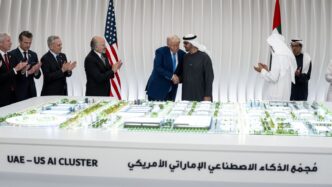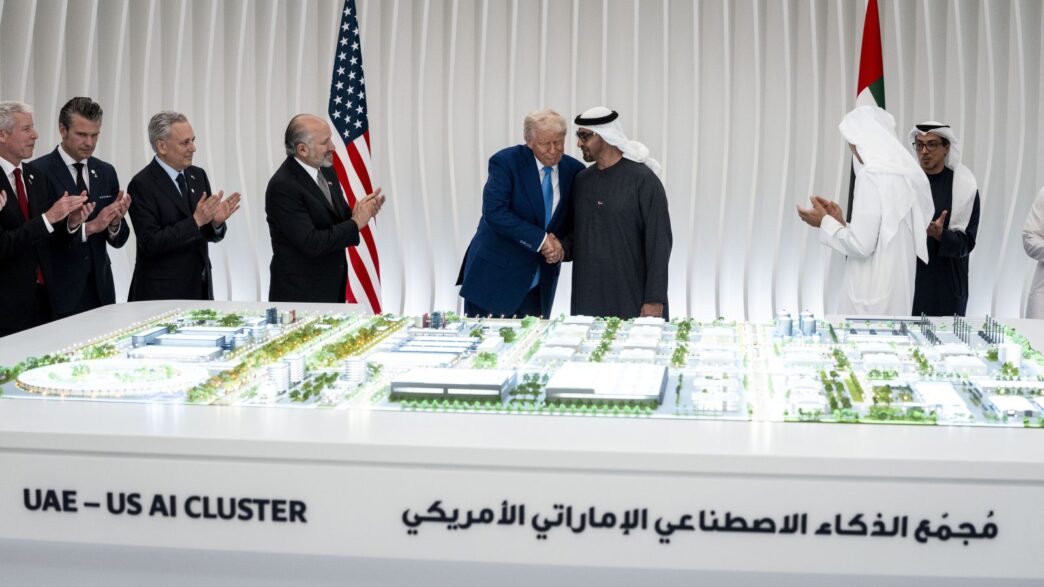The UAE, Saudi Arabia, and Qatar are dropping $2 trillion on AI and tech deals after last month’s U.S. President Trump Middle East tour.
Saudi Arabia pledged $600 billion over four years. Qatar committed $1.2 trillion. The UAE tacked on $200 billion to an existing $1.4 trillion AI development plan. Big names like Nvidia, Google, Oracle, AMD, and Amazon Web Services landed major contracts in AI research, chips, defense, aviation, and energy.
The catch: turning cash into real AI muscle won’t be easy. Talent shortages, scaling past pilot projects, and building institutions remain major hurdles, experts say.
Prabhakar Posam, CIO at Dubai’s Transworld Group, shared:
> The Gulf will be an AI superpower once massive spending turns into genuine technological leadership.
> The foundation exists through abundant capital and political support, but developing skilled workers and mature institutions will determine ultimate success.
G42, the UAE’s state-backed AI giant, is building a 5-gigawatt AI campus in Abu Dhabi — the largest outside the U.S. Saudi Crown Prince Mohammed bin Salman told the U.S.-Saudi Investment Forum the $600 billion Saudi-U.S. deal might hit $1 trillion soon.
Saudi Arabia’s AI push includes a $10 billion AMD deal, a $5 billion AWS AI zone, and a partnership with Nvidia to build 500 megawatts of AI factories fueled by 18,000 Grace Blackwell superchips. Qatar is focused on defense, aviation, and quantum computing, including a $96 billion Boeing aircraft order and a venture with Quantinuum.
The UAE is ahead on AI policy and pilots, rolling out Falcon large language models and the ASK71 platform for automation in government services.
Saif Mashat, VP for Middle East and Africa at ServiceNow said:
> The capital and political will are already in place.
> The next step is building the governance, talent, and operating models needed to deliver results at scale.
Defense deals dominate Saudi spending, with $142 billion earmarked for U.S. weapons systems — the largest arms sale in history.
Industry leaders expect the Gulf to become an AI powerhouse, developing regional AI frameworks tailored to local needs rather than copying others.
Avneesh Prakash, Camb.ai CEO, noted:
> The region is investing heavily in AI infrastructure and talent development.
> This will not just ensure technology independence but also address global AI demands.
The U.S. role brings credibility and speeds tech transfer, but Gulf success hinges on local ownership of strategy and talent.
The AI race in the Middle East has started — with massive cash and serious plans — but the real test is turning billions into breakthroughs.
Chiara Marcati from AI71 summed it up:
> The UAE moved early and is already delivering results.
> Saudi Arabia is building the infrastructure and ecosystems that could give it an edge over time.
The Gulf aims to become the new AI equator.














